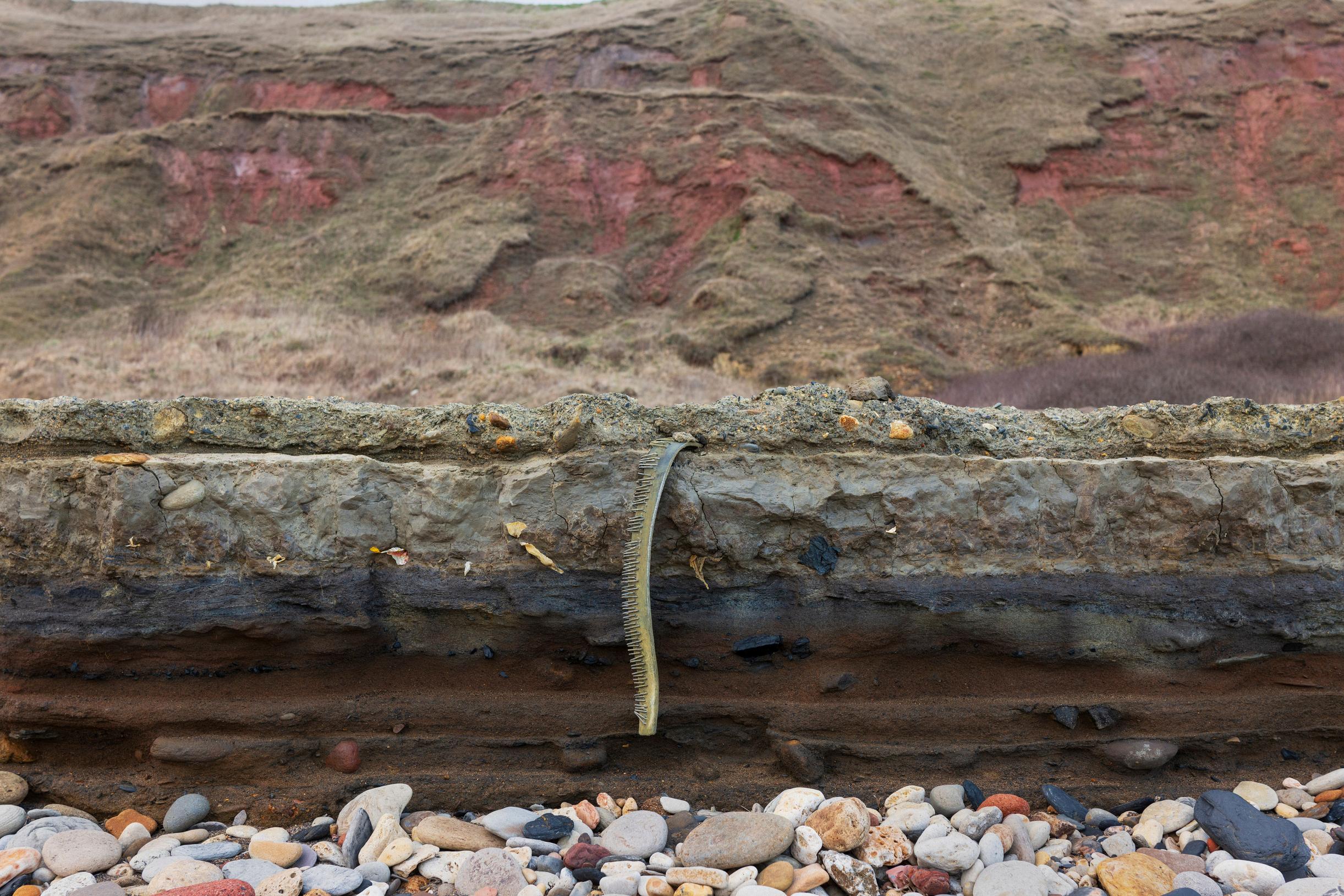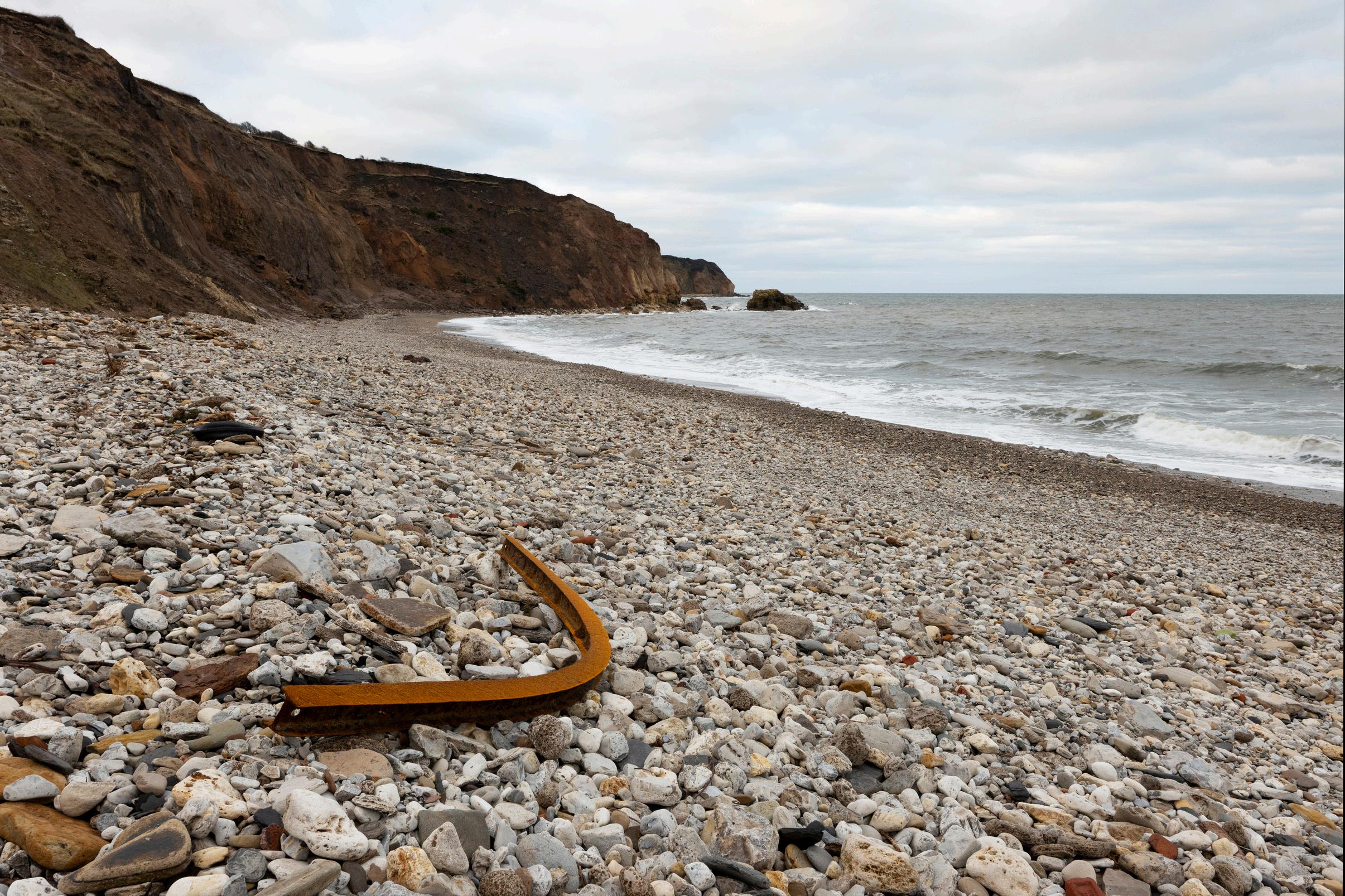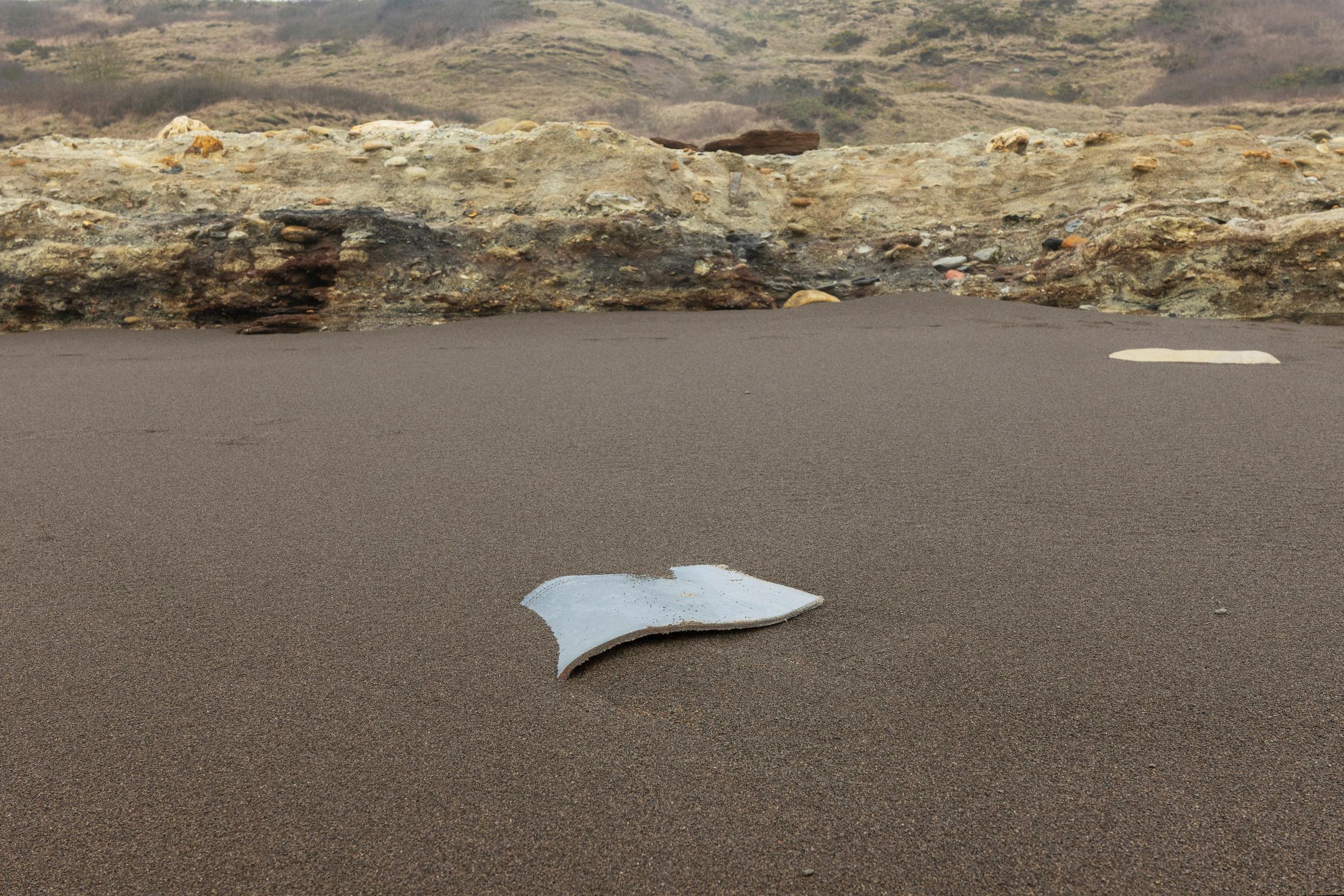
1.a line where two pieces of fabric are sewn together in a garment or other article.
2.an underground layer of a mineral such as coal or gold. "the buried forests became seams of coal"
In 1981 the Commission on Energy and the Environment (CENE) published its report on coal and the environment(129), which recommended that spoil should not be tipped further on beaches, that the NCB ought not to undertake marine tipping unless and until suitable methods of safeguarding habitats and amenities are found, and that the ecological consequences of pipeline deposition to the seabed should be fully examined. Even earlier, in May 1974, the Minister for Planning and Local Government, Mr John Silkin MP, had announced that the Government, the NCB and the local authorities had concluded that tipping must be brought to an end and the beaches reclaimed(130). During the course of our study we visited one of the worst affected areas (south of Dawdon Colliery, County Durham) and we were shocked by what we saw (Plate 6). Beaches in the neighbourhood were also visited subsequently by the then Parliamentary Under Secretary of State at the Department of the Environment, Mr Giles Shaw MP, who was reported in the local press as being appalled both at the scale of the problem and that such tipping was still practised. He announced that the Government, the NCB and local authorities had each agreed to contribute towards the cost of an experimental pipeline at Horden Colliery, which would take spoil some way out to sea and enable a full assessment to be made of the distance at which dispersal was adequate and the extent to which there were any adverse effects on the local marine environment. However, the Government's response to the CENE Report(131), while noting that the NCB had no plans to tip spoil on any new beaches and ideally would like to bring such tipping to an end, stated that the costs of doing so in the immediate future would be prohibitive.
1984 Royal Commission on Environmental Pollution



Easington beach was our summer escape from 1955 to 1970 ish. At first the stag from the pit came to the beach over the Flight. This was moving buckets which tipped the waste into the sea beneath the cliffs. The waste was stone and low grade cosl and coal dust.
Everything was black but there was still life in the sea, crabs, fish, anenomes and weed. In the early 1970s, the coal was washed at the pit head and a slurry of stone dust and coal dust was emptied on to the beack. This slurry de oxygenated the waters and all life died. By 1975ish Easington beach was a dead waste land. Shame on them.




Blackhall colliery also tipped waste into the sea but lots of us still caught good quality fish,crabs and lobster there the rock pools were alive with sea creatures in and around the rock pools at low water.
Interesting, I noticed, living in Blackhall that from around late 70s onwards, there did all of a sudden to be less wildlife washed up on the beach, sprats, starfish, crabs on the rocks etc, now its non existent.

Mr. Dormand
asked the Secretary of State for the Environment what action he proposes to take to stop the tipping of colliery waste on the foreshore of the United Kingdom.
Mr. Macfarlane
We have already taken steps to find a cost-effective and environmentally acceptable solution for spoil disposal from coastal collieries, and I am considering what further action is needed in the light of the tenth report of the Royal Commission on environmental pollution.
Mr. Dormand
Is the Minister aware that the 1981 report on coal and the environment and the report to which he has referred today condemned the tipping in the strongest possible terms and that both referred specifically to the north-east coast? Does he agree that it is essential that adequate financial assistance—certainly more than there is at present be provided for this purpose? Why should the north-east suffer? Would the Minister sit idly by if the beaches of Bournemouth and Torquay were being destroyed?
Mr. Macfarlane
The hon. Gentleman raises an important point. We have already taken some joint action, financed jointly by the NCB and local authorities. on an experimental pipeline at Hordern colliery. Some derelict land grant has already been spent on land reclamation in the hon.Gentleman's county of Durham but the problem is sufficiently difficult for me to wish to visit the hon. Gentleman's constituency to look at the area in some detail within the next six or seven weeks.
Hansard, 4 April 1984




The Beach
They've pulled my teeth removed my braces
Taken away external traces
My face is clean, a pristine land
Can't quite disguise coal peppered sand
Remember days when dross would spew
And cover jewels of brilliant hue
Now ochre, grey and off white sands
Hide coal truck's deeply driven bands.
Fishermen there, children play too,
Listening to cries of gull and curlew
No longer hear the falling shale
No longer see a grounded whale.
You cleaned me up, or so you say
What of the life you took away
No Good News Week to bring to life
A working beach well used to strife.
I may be cleaner, but I'm sad
No longer see the working lad
When you go home and leave me here
The sea can't wash away my tear
The tear I shed for life gone by
For kites the kids flew in my sky
For fires beside a fishing pole
The miners' kids gave me my soul.
Ann Peel
